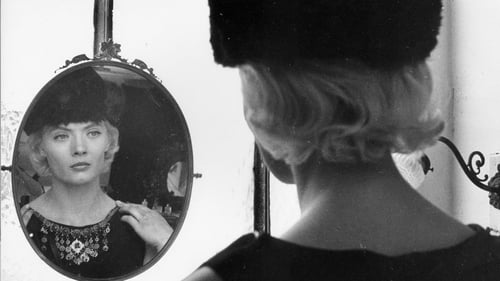
Editor
In this heartwarming docudrama, Chilean immigrant Marilú Mallet strives to make a film about her experience of deep isolation. Her English-speaking husband, a prominent film director, criticizes her subjective approach to filmmaking; her young son, raised in Quebec, speaks only French. Interviews with Isabel Allende and other Chilean exiles reveal a deep bond in this powerful and resonant film about language and genre, exile and immigration.

Editor
A downbeat story of life inside a women's prison. There is more crime inside than out. When the inmates see that a woman is soon to be admitted for killing a young boy, they begin to plan her murder.

Editor
This film documents the yearly cycle of the great blue heron, its migration from Central America and the West Indies to the St. Lawrence River in Québec, and the breeding and rearing of its young. Outstanding footage shot by the filmmaker perched high in a tree affords close-ups of the birds' intricate courtship rituals. A sensitive, beautifully photographed nature film with much to tell us of ecology and wildlife.

Editor
An acerbic and surreal comedy about marriage and married life.

Editor
A bourgeois family, who is harassed and humiliated, ruins their young maids without pay for several years.

Editor
암 진단 결과를 기다리던 가수 클레오는 곧 죽음을 맞이한다는 점괘를 받는다. 불안에 잠긴 클레오는 의사의 최종 진단을 기다리는 동안 끊임없이 파리 곳곳을 배회하기 시작한다.
'파리에서 만들어진 가장 아름다운 영화'라는 평가를 받았던 이 영화는 감독인 아녜스 바르다에게 최초로 국제적인 명성을 가져다주었다. 클레오의 모든 행동과 사건들은 실제로 물리적 시간의 흐름에 따라 묘사됨으로써 그녀가 죽음에 대한 두려움에 사로잡혀 있는 모습과 그 두려움을 벗어나게 되는 과정이 동시적으로 포착된다. 영화 속에서 점차로 그녀는 자기 자신은 물론이고 죽음과 삶에 대한 새로운 시선과 통찰을 향해 나아가기 때문이다. 바르다는 이 작품에서 관습적인 이야기 전개 대신에 사진적인 것과 영화적인 것의 특성을 최대한 활용하고 있는데, 미와 추는 조우하고 그로테스크함(살아있는 개구리를 먹는 남자)과 사랑스러움(클레오의 공적 이미지)은 병치되며, 빛과 어둠, 인공적인 것과 자연적인 것은 시각적 대조를 이루고, 밝은 뮤지컬 코미디와 비극적 드라마가 서로 엮어 들어감으로써 영화는 전반적으로 대립을 통해서 미묘한 결을 구성해간다.




